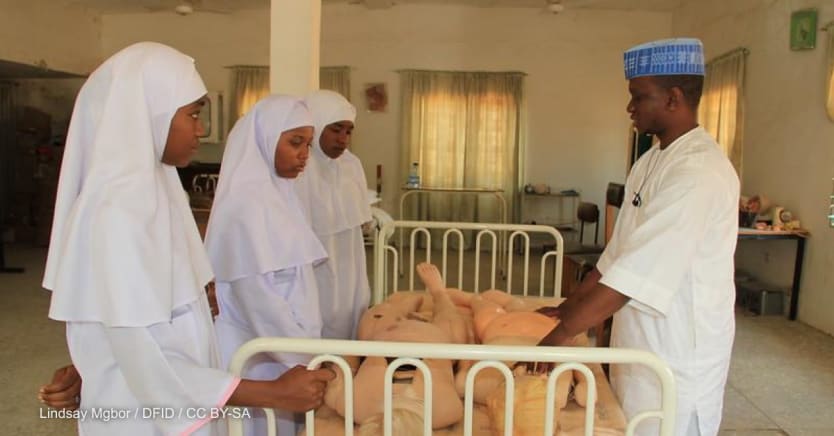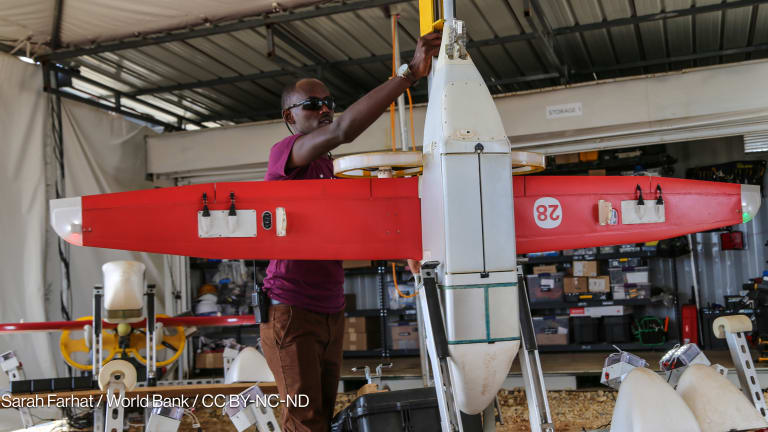
As Nigeria country director at Women for Women International, I was shocked, saddened, and deeply disappointed to learn recently that the U.K. Foreign, Commonwealth & Development Office decided to terminate, with immediate effect, a three-year grant agreement that we are halfway through implementing. In 20 years of working for NGOs in Nigeria, I have never encountered a situation like this — in which a funder commits to multiyear funding and then reneges on its promise partway through.
In all the reports we send to FCDO, we are asked to report on the value for money that our program is providing. I challenge someone to tell me the value for money that is represented by ending a program halfway through, with money already invested but the final results not yet apparent. And far more importantly, what about the value of women’s lives?
Back in 2019, I was overjoyed to learn that the Department for International Development — a precursor to FCDO — had awarded us a three-year grant, which would allow Women for Women International to offer our tried and tested yearlong training program in Nigeria’s Bauchi state, where I had long wanted to support women. Bauchi is one of the poorest states in the country.
It is also home to a large population of displaced Nigerians, uprooted from their homes by the Boko Haram insurgency, natural disasters, and interethnic clashes.
We started our work in Bauchi communities as we typically do elsewhere, meeting community leaders and state government representatives to introduce Women for Women International and tell them about our training programs.
At first, my team found it difficult to build trust there. We found that attitudes were much more entrenched in traditional religious and patriarchal beliefs than in other areas of Nigeria where we have worked.
This proved what I suspected: Women in Bauchi state are some of the most marginalized in Nigeria, and they needed us most.
We persisted in our efforts. Male community leaders from Bauchi joined our men’s engagement program, also funded by the FCDO grant. We told them we would be offering training to women and men in local communities for at least three years thanks to that funding.
I am heartbroken knowing I must go back and break the trust that was so recently gained. Shortly after the grant was canceled, I traveled to Bauchi state myself to share the news with my colleagues who work there. It was received with a deafening silence; I could see the shock in everyone’s eyes. They just stared at me! My goal now is to activate our resilience as individuals and as a team to manage this unprecedented reality.
Initially, FCDO gave us just two weeks to submit a budget for closing down the whole project. We have asked for an extension due to the intensive and unexpected time required to work on this. My colleagues around the world have committed to prioritizing a search for funding to replace the canceled grant.
The results from the first year in Bauchi speak for themselves. In 2020, 62% of women who finished our program reported earning at least $1.90 per day — the World Bank’s poverty line — by graduation, whereas only 3% made that much before. And 61% of the male leaders who took part in the men’s engagement program reported taking actions in support of women’s rights.
But these numbers don’t tell the whole story. Women who graduated in Bauchi state in 2020 shared stories of how their lives have been transformed. We followed two women in Bauchi — Hassana and Saratu — throughout the year as they participated in the Stronger Women, Stronger Nations Program.
“All the promises made by our trainers before I was enrolled into the programme were fulfilled,” Saratu told us after graduating. “We were given back our confidence through the training on rights. … We learned how to form support networks and now we all have individual bank accounts - something I would never have thought of while living my old life.”
I challenge someone to tell me the value for money that is represented by ending a program halfway through, with money already invested but the final results not yet apparent.
—Decision-makers at FCDO might forget that there are real people behind the figures, but I will never reduce women to numbers in a spreadsheet. There are currently 1,200 women like Saratu enrolled in our 12-month program in Bauchi who are over halfway through their training. Each of these women is an individual with hopes and dreams. She has started to build a business, she is in the middle of learning new skills, and she has shared with her children the promise of a better future.
Women in Bauchi state have experienced crisis and conflict on top of poverty. The U.K. government allowed us to offer them hope for a brighter future, and now we are being told to snatch that offer of hope away. The message that women like Saratu will hear is: “You are disposable. You don’t matter.”
My plea to FCDO, to U.K. citizens, and to anyone who will listen is this: Please don’t let down the women of Bauchi state, please don’t take away support from communities that need you now more than ever, and please fulfill the promises you made.








